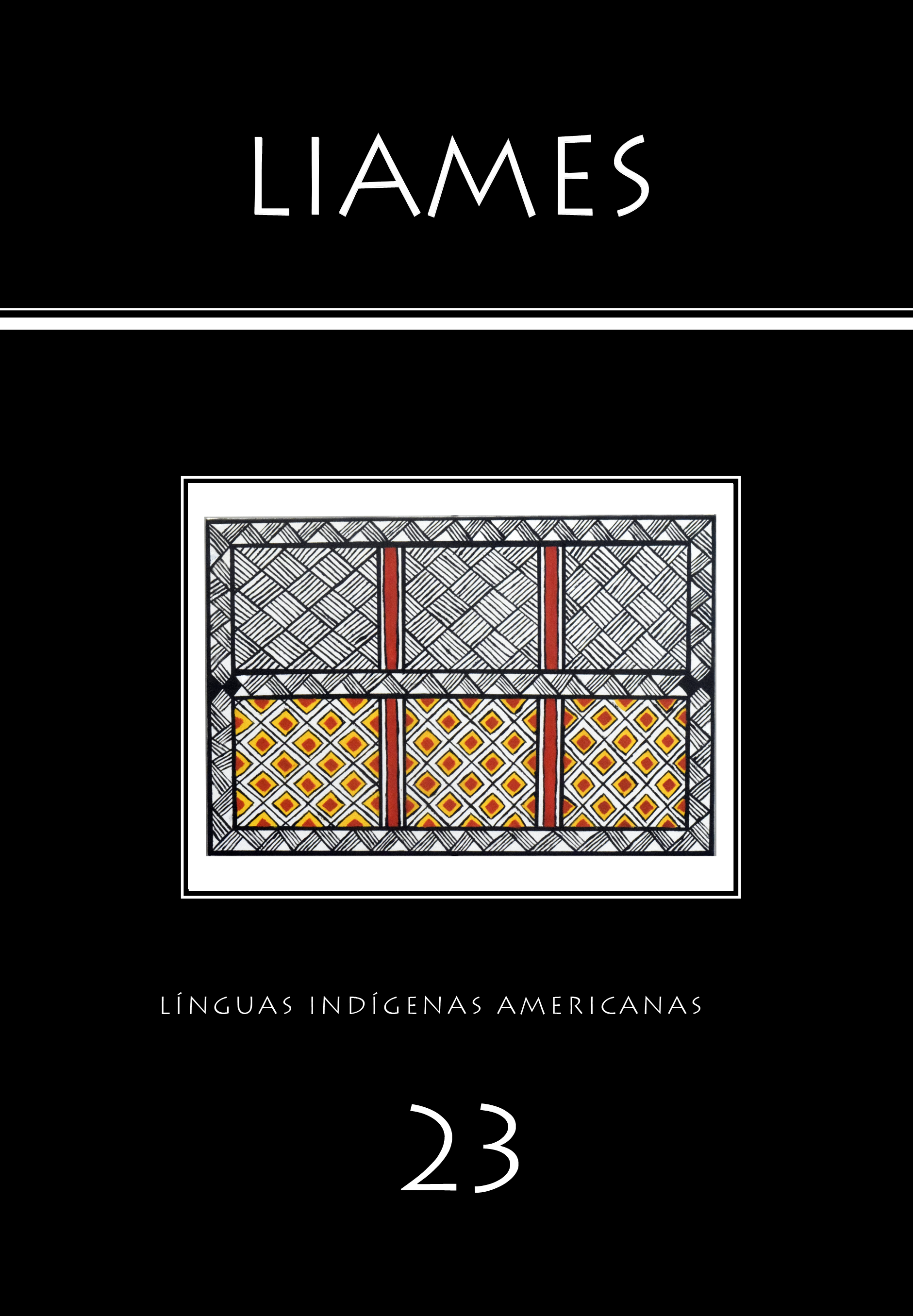Abstract
with tense in main and embedded clauses. The data in this paper come from elicitation and from narratives collected at different times since the 1990’s. The facts show that there is a restriction in co-occurrence between future tense and the quotative relational only in embedded clauses. Otherwise, the reportative evidential can co-occur with a future tense marker. Moreover, this work investigates the syntactic position of the reportative evidential examining its placement in relation to negative markers and complementizers. Negation offers strong evidence that the evidential one is at the sentential level, since it interacts syntactically and morphologically with negation. Kadiwéu is a language from the Chaco area, located between Paraguay, Argentina, Brazil, and Bolivia. It belongs to the Guaikuruan linguistic family.
References
Aikhenvald, Alexandra Y (1984). Evidentialiy in Tariana. In Alexandra Y. Aikhenvald and R. M.W Dixon (eds.), Studies in evidentiality (Typological Studies in Language), pp.131-164. Amsterdam: John Benjamins. https://doi.org/10.1075/tsl.54.09aik
Arregui, Ana; Rivero, María Luisa, and Salanova, Andrés Pablo (2017). Aspect and tense in evidentials. In Ana Arregui; María Luisa Rivero, and Andrés Pablo Salanova (eds.), Modality across syntactic categories (Oxford University in Theoretical Linguistics), pp. 211–234. Oxford: Oxford University Press.
Ceria, Verónica G. and Filomena Sandalo (1995). A preliminary reconstruction of Proto-Waikurúan with special reference to pronominals and demonstratives. Anthropological Linguistics 37(2): 169-91.
Carpio, Maria Belén and González, Raúl Eduardo (2017). Evidencialidad y modalidad epistémica en dos variedades de toba habladas en Formosa, Argentina. Lexis 41(1): 121-147. https://doi.org/10.18800/lexis.201701.004
Couto, Mariany A. (2018). A categoria de evidencialidade na língua indígena Kadiwéu (Master thesis). Campinas: State University of Campinas. https://doi.org/10.47749/T/UNICAMP.2018.1063575
Faller, Martina (2020). Propositional- and illocutionary-level evidentiality in Cuzco Quechua. Semantics of Under-Represented Languages in the Americas, vol. 2(1), Article 3. Available at: https://scholarworks.umass.edu/sula/vol2/iss1/3
Griffiths, Glyn (1987). Relative clause formation and other word parameters in Kadiwéu. Reading University master thesis.
Griffiths, Glyn (2002). Dicionário da língua Kadiwéu. Kadiwéu-Português, Português-Kadiwéu SIL ms. Available at: https://www.sil.org/system/files/reapdata/74/06/08/74060839706011162756896570533590209458/KDDict.pdf.
Nevins, Andrew and Sandalo, Filomena (2011). Markedness and morphotactics in Kadiwéu. [+participant] agreement. Morphology 21(2): 351-378.
Pancheva, Roumyana and Zubizarretta, Maria Luisa (2019). On the role of person features in the evidential-temporal connection. Canadian Journal of Linguistics 64(4): 673-798. https://doi.org/10.1017/cnj.2019.26
Sandalo, Filomena (1997). A grammar of Kadiwéu with special reference to the polysynthesis parameter. MIT Occasional Papers in Linguistics 11.
Sandalo, Filomena (2009). Person hierarchy and inverse voice in Kadiwéu. LIAMES- Línguas Indígenas Americanas 9(1): 27-40. https://doi.org/10.20396/liames.v9i1.1462
Sandalo, Filomena (2020). Individuation, counting, and measuring in the grammar of Kadiwéu. Linguistic Variation 20(2): 239-254. https://doi.org/10.1075/lv.00018.san
Sandalo, Filomena and Michelioudakis, Dimitris (2016). Classifiers and plurality: evidence from a deictic classifier language. Baltic International Yearbook of Cognition, Logic and Communication 11: 1-40.
Sandalo, Filomena (2023). On the Guaikuruan inverse system: interpreting Kadiwéu and Mocoví person hierarchies. International Journal of American Linguistics 89(1): 105-135. https://doi.org/10.1086/722239
Sena, Ticiana. A. (2016). Obviação em Kadiwéu (Master thesis). State University of Campinas. https://doi.org/10.47749/T/UNICAMP.2017.983606
Smirnova, Anastasia (2013). Evidentiality in Bulgarian: Temporality, epistemic modality, and information source. Journal of Semantics 30(4): 479–532. https://doi.org/10.1093/jos/ffs017

This work is licensed under a Creative Commons Attribution-NonCommercial 4.0 International License.
Copyright (c) 2023 Maria Filomena Spatti Sandalo


